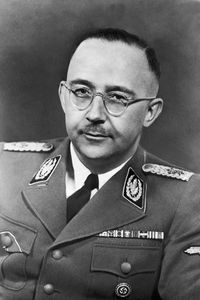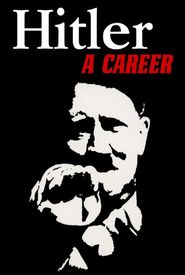Heinrich Luitpold Himmler, a prominent German politician and influential figure within the Nazi Party, was born on October 7, 1900, and would go on to ascend to a position of immense power and influence within the Nazi regime, ultimately emerging as one of the most powerful and feared individuals in Nazi Germany.
As Reichsführer of the SS, Himmler was responsible for overseeing the Schutzstaffel, a paramilitary organization that served as the Nazi Party's elite corps, and was known for its brutal and ruthless tactics.
In addition to his role as Reichsführer, Himmler also served as a military commander, playing a key role in the development and implementation of Nazi Germany's military strategy during World War II.
Furthermore, Himmler held the position of Chief of the German Police, giving him control over the country's law enforcement agencies and allowing him to wield significant influence over the country's internal security and political affairs.
Throughout his career, Himmler was known for his unwavering loyalty to Adolf Hitler and the Nazi Party, and was instrumental in the implementation of many of the party's most notorious policies, including the Holocaust.
As the Minister of the Interior, Heinrich Himmler held a position of immense authority, exercising overarching supervision over all internal and external police and security forces, encompassing the infamous Gestapo, an organization notorious for its ruthless tactics and far-reaching powers of surveillance and persecution.
In addition to his role as Minister of the Interior, Himmler also served as the Commander of the Replacement Army, a position that granted him considerable influence over the military's mobilization and deployment.
Furthermore, as General Plenipotentiary for the entire Reich's administration, Himmler wielded significant control over the country's administrative machinery, allowing him to shape and direct the day-to-day operations of the government.
Through these multiple roles, Himmler was able to exert a profound impact on the inner workings of the Nazi regime, utilizing his vast powers to shape the course of German history and implement the twisted ideologies of the Nazi party.
Himmler's involvement in the Holocaust is extensively documented, with his position as the overseer of concentration camps, extermination camps, and Einsatzgruppen serving as a testament to his pivotal role in the systematic killing of millions of innocent lives.
His responsibilities entailed the coordination of mass murder on an unprecedented scale, with estimates suggesting that between six million Jews, 200,000 to 500,000 Roma, numerous prisoners of war, and possibly an additional three to four million individuals from groups deemed unworthy to live by the Nazi regime, including Poles, communists, and others, lost their lives at the hands of his directives.
Heinrich Himmler, the notorious head of the SS and a key architect of the Holocaust, surprisingly attempted to surrender to the Western Allies mere days before the war's conclusion, proposing a Faustian bargain where he would spare himself from prosecution in exchange for Germany's unconditional surrender.
Heinrich Himmler, a pivotal figure in the Nazi Party's hierarchy, wielded significant influence over the party's policies and ideologies, leaving an indelible mark on the course of history. His life's work is inextricably linked to the catastrophic events of the 20th century, and the far-reaching consequences of his actions continue to reverberate across the globe.
**Person Biography:**
Heinrich Luitpold Himmler was born on October 7, 1900, in Munich, Germany, to a family of modest means. His early life was marked by a fascination with the occult and a growing interest in politics. Himmler's academic pursuits were cut short when he suffered a nervous breakdown, leading him to focus on his military career.
In 1925, Himmler joined the Nazi Party, where he quickly rose through the ranks, thanks in part to his charisma and organizational skills. He became a close confidant of Adolf Hitler and was appointed Reichsführer-SS in 1929. Himmler's tenure was marked by a ruthless efficiency and a commitment to the party's ideology, which he enforced through a network of concentration camps and secret police.
As the Nazi Party's power grew, Himmler's influence expanded, and he became one of the most powerful men in Germany. His legacy, however, is one of unimaginable tragedy and devastation, as his actions contributed to the deaths of millions of people during World War II.









































